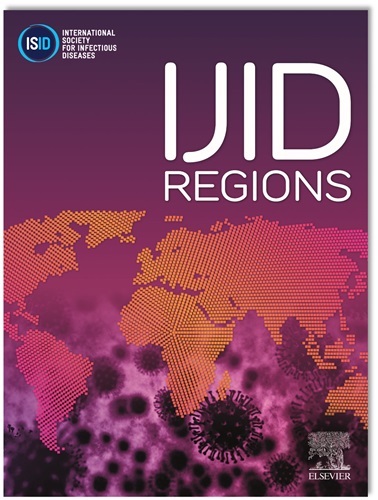与病毒载体疫苗相比,mRNA COVID-19疫苗在癌症患者中诱导更高的IgA滴度:对免疫策略的影响
IF 4.3
2区 医学
Q1 INFECTIOUS DISEASES
引用次数: 0
摘要
目的:IgA抗体参与粘膜免疫,并在病原体进入时立即消灭病原体。疫苗诱导的IgA抗体可以为易感染的癌症患者提供针对SARS-CoV-2的额外保护。这可能与癌症患者特别相关,因为与健康个体相比,他们在双剂量BNT162b2 COVID-19疫苗接种后产生的IgG抗体滴度降低,而在双剂量ChAdOx1疫苗接种后产生的反应甚至更低。然而,关于疫苗诱导的IgA抗体的数据很少,特别是在癌症患者中。方法:比较肿瘤患者双剂量BNT162b2和ChAdOx1接种后的SARS-CoV-2抗s1 IgA抗体。用IEQ-CoVS1RBD-IgA-1-RB酶联免疫吸附测定试剂盒(RayBiotech公司,IEQ-CoVS1RBD-IgA-1-RB酶联免疫吸附测定试剂盒)测定第二次接种后第7天(N=213)血清中SARS-CoV-2抗s1 IgA抗体,并进行比色检测。此外,还评估了体液免疫不同方面的相关性(中和抗体和IgG抗体)。结果:与BNT162b2接种相比,双剂量ChAdOx1接种后癌症患者的抗s1 IgA抗体滴度显著降低。此外,与接受ChAdOx1疫苗接种的患者相比,接受双剂量BNT162b2疫苗接种的癌症患者携带可检测的IgA抗体的机会增加了16.44倍。结论:这些发现强调了增强剂或其他策略在维持粘膜免疫方面的潜在作用。本文章由计算机程序翻译,如有差异,请以英文原文为准。
mRNA COVID-19 vaccines induce superior immunoglobulin A titers in patients with cancer compared with viral vector vaccines: implications for immunization strategies
Objectives
Immunoglobulin (Ig) A antibodies are involved in mucosal immunity and eliminate pathogens immediately at the point of entry. Vaccine-induced IgA antibodies could contribute to an additional layer of protection against SARS-CoV-2 for infection-prone patients with cancer. This might be particularly relevant for patients with cancer because they mount reduced IgG antibody titers after dual-dose BNT162b2 COVID-19 vaccination and even lower responses after double-dose ChAdOx1 vaccination than healthy individuals. However, data on vaccine-induced IgA antibodies are scarce, especially in patients with cancer.
Methods
This study compares SARS-CoV-2 anti-spike (S1) IgA antibodies after dual-dose BNT162b2 vs ChAdOx1 vaccination in patients with cancer. SARS-CoV-2 anti-S1 IgA antibodies were quantified in serum samples collected 7 days after the second vaccination dose (N = 213) (IEQ-CoVS1RBD-IgA-1-RB enzyme-linked immunosorbent assay kit, RayBiotech) and analyzed with colorimetric detection. In addition, correlations with different aspects of humoral immunity were assessed (neutralizing and IgG antibodies).
Results
Significantly lower anti-S1 IgA antibody titers were reported in patients with cancer after dual-dose ChAdOx1 than BNT162b2 vaccination. Moreover, patients with cancer who received dual-dose BNT162b2 vaccination had a significant 16.44-fold increased chance to mount detectable IgA antibodies compared with patients receiving ChAdOx1 vaccination.
Conclusions
These findings highlight the potential role of boosters or alternative strategies to sustain mucosal immunity.
求助全文
通过发布文献求助,成功后即可免费获取论文全文。
去求助
来源期刊
CiteScore
18.90
自引率
2.40%
发文量
1020
审稿时长
30 days
期刊介绍:
International Journal of Infectious Diseases (IJID)
Publisher: International Society for Infectious Diseases
Publication Frequency: Monthly
Type: Peer-reviewed, Open Access
Scope:
Publishes original clinical and laboratory-based research.
Reports clinical trials, reviews, and some case reports.
Focuses on epidemiology, clinical diagnosis, treatment, and control of infectious diseases.
Emphasizes diseases common in under-resourced countries.

 求助内容:
求助内容: 应助结果提醒方式:
应助结果提醒方式:


